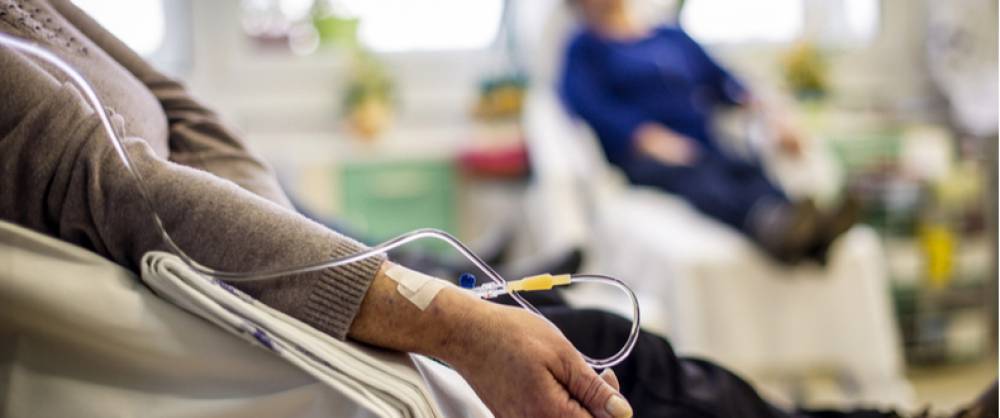Subscribe to get weekly insights
Always stay up to date with our newest articles sent direct to your inbox
Published on 13 Aug, 2020
Updated on 11 Aug, 2025
6060 Views
5 min Read

Written by Jyotsana Shekhawat
Reviewed by Akhil Pillai
favorite1Like
The buzzing mosquito menace causes far more damage than just disturbing your sleep. The female mosquito, weighing less than 2 milligrams, has a lethal sting that can make you scratch yourself for hours. And if, to your bad luck, she is infected with a virus, things can get a little serious. The lowly mosquitos have been on the earth for billions of years, and getting rid of them is often tricky.
A scourge through centuries, malaria has caused the death of more people than plagues and wars combined.1 Despite having spent millions, there still isn't any vaccine against malaria. Knowing about the disease, however, can help prevent it. Keep reading this article to learn more about malaria treatment, symptoms, diagnosis, which mosquito causes malaria, etc. Let’s start!
Malaria is a serious disease caused by Plasmodium parasites transmitted to the human body through bites of infected female Anopheles, a type of mosquito. These parasites penetrate the bloodstream, entering all the way to the liver, and multiply quickly, ultimately invading red blood cells. The disease is common in tropical and subtropical regions, particularly in parts of Asia, South America, and Africa.
Malaria is a life-threatening disease caused by parasites, specifically Plasmodium vivax, Plasmodium Falciparum, Plasmodium malariae, and Plasmodium ovale. These parasites are transmitted through infected female Anopheles Mosquitoes.
It usually takes two weeks for the disease to show symptoms. The most common symptoms of Malaria are listed below:
Malaria poses serious health risks if left untreated. As the disease worsens, it can lead to anaemia through red blood cell destruction and jaundice. The most dangerous type of malaria is cerebral malaria, where parasites sequester in the brain and might result in coma, thus progressing to death.
There are five types of Plasmodium parasites linked that cause malaria in humans. Each parasite has a geographic distribution—and level of severity. Let’s take a look.
Malaria poses grave risks, and without treatment, complications can be lethal.
It is important to note that Malaria could return. The malaria parasite can persist for years and lead to relapses in some cases. These parasites normally cause milder versions of the disease.
Now that you know malaria is caused by mosquitoes and what the malaria symptoms are, it is time to understand what to do if you experience any such symptoms. Go to the doctor immediately for diagnosis. Before proceeding, your doctor will inquire if you have visited any mosquito-breeding place recently. After taking your medical history, you can go for a Malaria diagnosis with the help of two tests.
Under blood tests, blood samples are taken to count the number of platelets and the quantity of bilirubin in your blood. If the number of platelets is lower and the amount of bilirubin in the blood is higher than the average level, it is severe Malaria.
>>Read More: How to Increase Platelet Count?
RDT is required if the blood test report reveals platelet and bilirubin count variations. The blood sample is assessed further to check the presence of proteins called antigens. Plasmodium parasites produce antigens. The test can detect which species of plasmodium parasite is responsible for causing Malaria.
Thus, both tests are helpful for doctors in diagnosing malaria and planning treatment.
The treatment of Malaria and the dosage of drugs depend on the severity of the illness. The treatment plan combines antimalarial drugs to control fever, antiseizure medications, fluids, and electrolytes. The medicines and antibiotics for malaria treatment available include:
Note: Medicines names are for information purposes only. We do not advise taking them without consultation with your doctor.
If it is falciparum malaria, a patient needs to be monitored in the intensive care unit of a hospital for malaria treatment as it can cause breathing failure, coma, and kidney failure.
Malaria is curable and preventive too. Here are the ways you can avoid getting mosquito bites and also do malaria prevention:
Following these steps can greatly help prevent and control malaria.
>>Read More: How to Prevent Vector-Borne Diseases During Monsoon
Knowing how to control malaria is essential to preventing the disease from spreading. The measures above can be expedient in shielding against malaria.
Additionally, opting for the best health insurance policy can help manage malaria-related hospitalisation expenses. Care Health Insurance offers an exclusive family health insurance policy that also covers vector-borne diseases like Malaria, Dengue, etc. (subject to policy terms and conditions). To get more information about the policy, you can allow our expert to contact you.
Disclaimers: Underwriting of claims for Malaria is subject to coverage and policy terms & conditions.
Thyroid : मामूली नहीं हैं महिलाओं में थायराइड होना, जानें इसके लक्षण और घरेलू उपचार Vipul Tiwary in Diseases
शुगर कंट्रोल कैसे करे? जानें, डायबिटीज में क्या खाना चाहिए Vipul Tiwary in Health & Wellness
हाई ब्लड प्रेशर को तुरंत कंट्रोल कैसे करें? देखें इसके उपाय Vipul Tiwary in Diseases
पैरों में दर्द किस कमी से होता है? जानें, इसके घरेलू इलाज Vipul Tiwary in Health Insurance Articles
Cold Hands? Act Immediately Against Raynaud’s Phenomenon Jagriti Chakraborty in Diseases
Understanding Azotemia: Meaning, Causes, Treatment & ICD 10 Guide Leena Khowal in Diseases
Leukaemia vs. Lymphoma Breakdown: What Sets Them Apart Leena Khowal in Diseases
When Silent Clots Threaten Your Life: DVT Pratham Gupta in Diseases
Always stay up to date with our newest articles sent direct to your inbox
Loading...